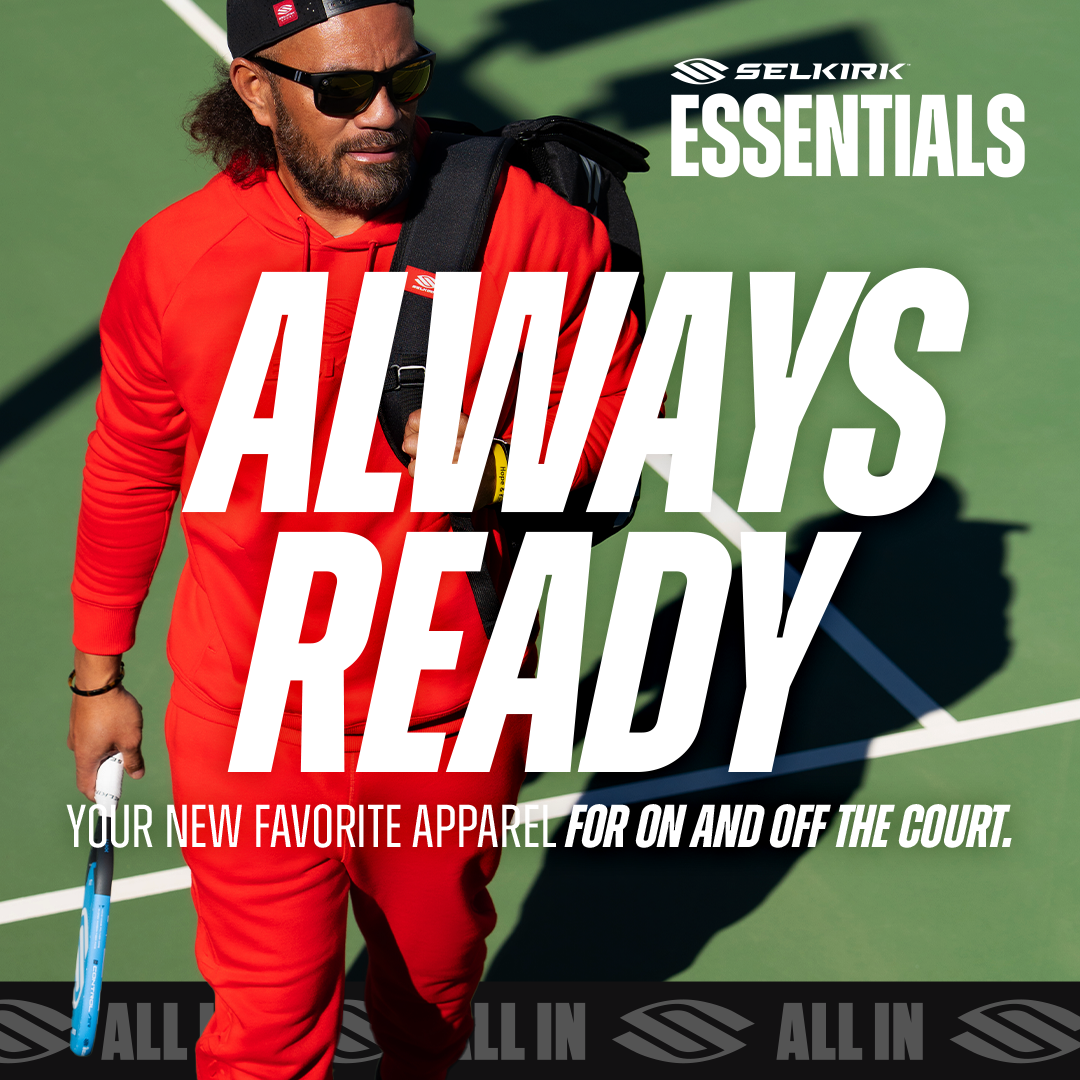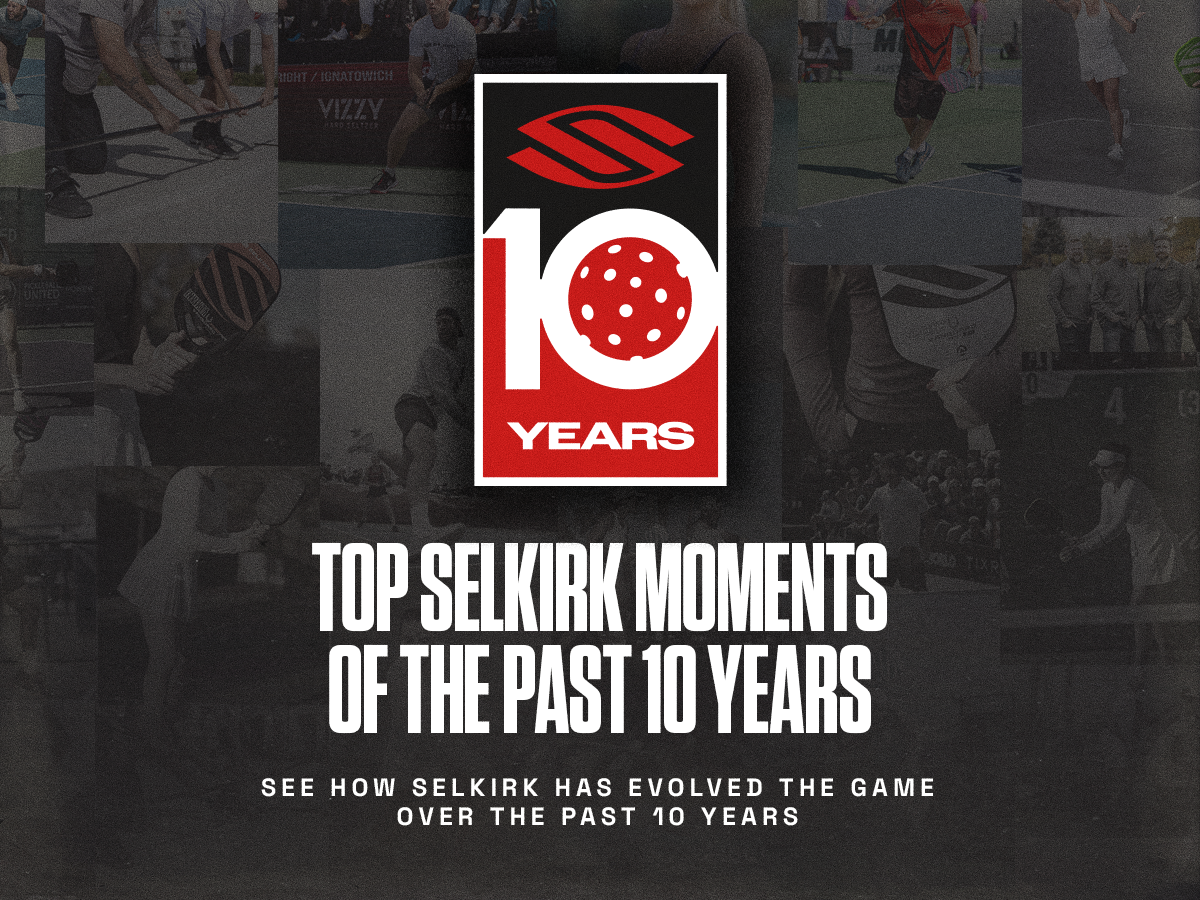In a sport as social and fast-growing as pickleball, it’s common for players to end up in groups that don’t quite match their skill level.
Whether someone is unintentionally dominating a recreational game or struggling to keep up in an advanced round robin, it can be awkward for everyone.
If you’re wondering how to politely tell someone they’re playing at the wrong level, you’re not alone. Here’s how to approach the situation with kindness, tact, and respect for the game.
Why level-matching matters in pickleball
Playing with the right group helps ensure everyone has a fair, competitive, and fun experience. It also:
-
Encourages skill development by matching players with similarly skilled partners and opponents.
-
Prevents discouragement or frustration, especially for newer players.
-
Keeps games flowing smoothly and safely.
Signs someone may be playing pickleball at the wrong level
Establishing groups by skill level is not designed to exclude anyone, but rather ensure everyone has a positive playing environment.
Before initiating a conversation about a group change, it’s helpful to recognize the signs that someone may be in the wrong group:
-
A player is consistently winning by large margins or overpowering the game.
-
A player is consistently struggling to return serves or keep up with the rally pace.
-
Other players are quietly opting out of games when that person is on the court.
-
A round robin, ladder, or open play session is being disrupted by mismatched play.
If one of these scenarios is happening frequently, it might be time for a polite conversation.
How to tell someone they are in the wrong pickleball group kindly
Telling someone they’re not in the right group can feel uncomfortable, but with the right words and tone, it can be helpful.
Here are a few tips:
1. Use inclusive, team-oriented language
Instead of framing the issue as something “wrong” with their game, approach it as a group effort to ensure the best experience for all.
“Hey, I noticed you’ve been doing really well here — have you thought about trying out the 4.0 group? You might get a more competitive match there!”
“Some of the players here are still working on their consistency. Would you be open to joining a more advanced group where the play is faster?”
"I know this level has been a bit fast-paced lately, and I’ve noticed that some of the rallies might be getting a little overwhelming. I totally get it — it happens to all of us at some point. I think moving down to the [next group down] for now could give you a chance to get more consistent touches and really build confidence with players who are working on the same things."
"A lot of players move between levels — it’s super common. It’s not about skill so much as making sure you’re having a good time and getting the kind of games that help you improve. And when you’re ready, we’d love to have you back up here."
This makes it feel like you’re suggesting ways to help them improve, not rejecting them.
2. Take it off the court if possible
Sensitive conversations are best had away from the group. A quick word in private can go a long way in making someone feel respected.
“Hey, mind if we chat for a sec? I wanted to talk about something I think could really help you get more out of your games.”
3. Let organizers take the lead (when applicable)
If you’re playing in a league, club, or event, there’s often someone designated to manage group levels. If it’s not your place to intervene directly, you can pass the concern along.
“Hey [Organizer’s Name], I noticed some games are feeling unbalanced. Can we take a look at who’s signed up for which sessions?”
What not to say when asking someone to change pickleball groups
Even well-meaning players can accidentally offend with the wrong phrasing. Avoid phrases like:
-
"You’re not good enough to play here." (Too blunt and exclusionary)
-
"You’re dragging the game down." (Hurtful and confrontational)
-
"No one wants to play with you." (Unnecessarily harsh)
Stick to constructive and kind language that offers a solution, not just criticism.
Ways to help someone find the right pickleball group
Sometimes, someone is new to the scene or unsure of their rating. Help them navigate:
-
Recommend they try a skill assessment or rating clinic.
-
Suggest specific days or sessions that are a better match.
-
Offer to introduce them to players at their level.
Helping someone find the right fit is just as important as pointing out a mismatch.
Pickleball etiquette is about respect
Pickleball is a welcoming, community-driven sport, and that spirit should guide all player interactions. When talking to someone about their level:
-
Be empathetic
-
Assume positive intent
-
Focus on helping them have more fun, not less
With kindness and tact, you can keep the vibe friendly while keeping the games fair.
























































